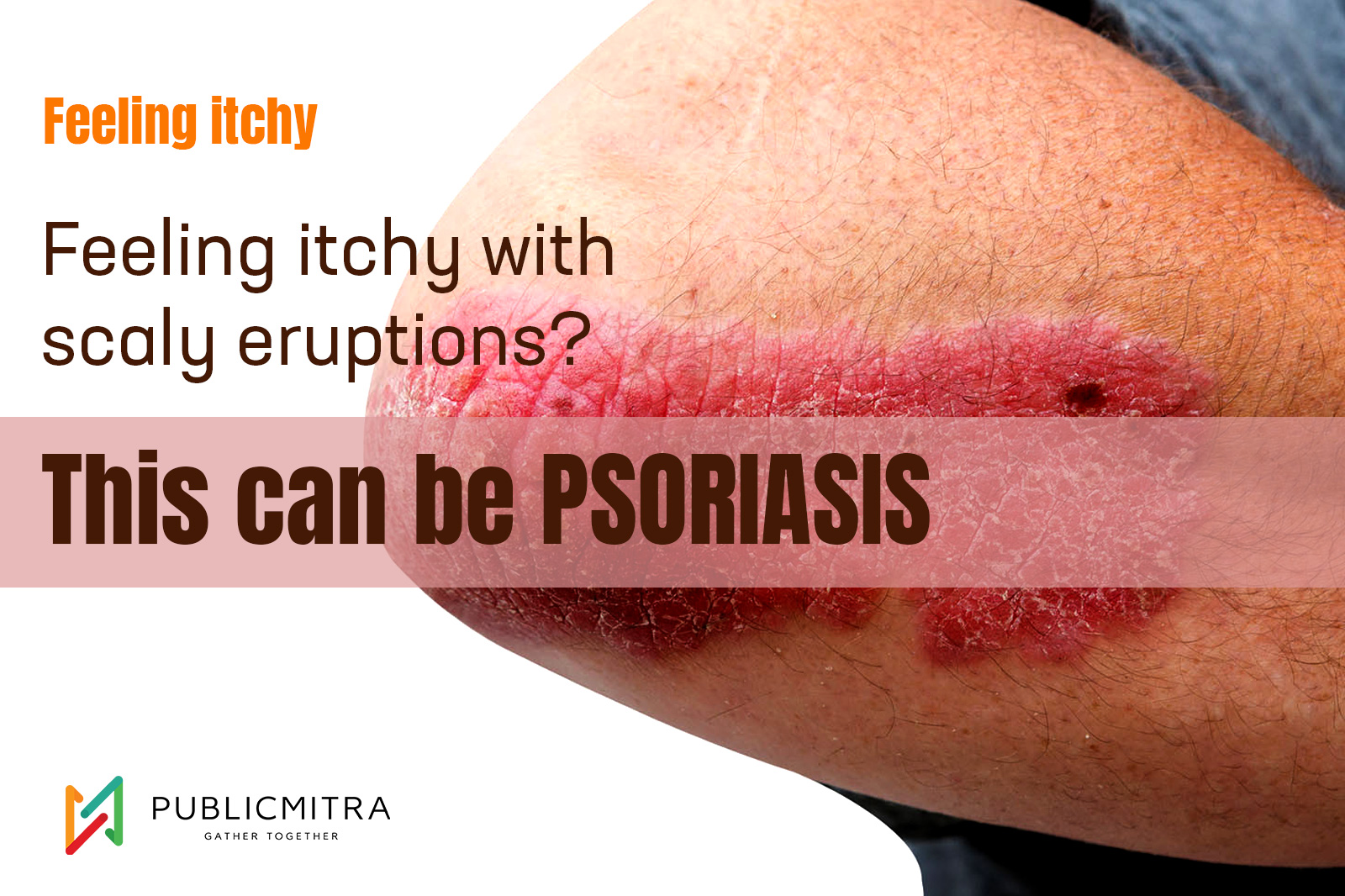Feeling Itchy With Scaly Eruptions? This Can Be PSORIASIS
What is psoriasis?
“Psoriasis is a chronic autoimmune skin disorder characterized by the abnormal growth of skin cells, resulting in red, scaly patches that can cause significant physical and psychological distress.”
Several studies show lifestyle factors, such as stress and obesity, can eventually lead to conditions like psoriasis. While the exact mechanism is being understood by various studies, several observations and hypotheses have been proposed.
- Stress: Psychological stress, including emotional stress and certain life events, has long been associated with the exacerbation and onset of psoriasis. Stress can trigger immune system dysregulation and inflammatory responses, potentially worsening psoriasis symptoms. Stress hormones, such as cortisol, may also play a role in modulating the immune system and influencing the severity of psoriasis.
- Obesity: There is a growing body of evidence suggesting a link between obesity and psoriasis. Obesity predisposes pro-inflammatory conditions leading to immunomodulation and it leads to stress in the body.
- Insulin Resistance: Obesity is often accompanied by insulin resistance, a condition in which the body’s cells become less responsive to the effects of insulin. It produces chemicals like insulin-like growth factor (ILF) which increases cell turnover. It is believed that the interaction between insulin resistance, obesity, and chronic inflammation contributes to the severity of psoriasis.
It Is important to note that the relationship between stress, obesity, and psoriasis is complex and multifactorial. Managing stress through relaxation techniques, stress-reducing activities, and psychological support may help in controlling psoriasis symptoms. Similarly, adopting a healthy lifestyle, including weight management, regular exercise, and a balanced diet, may have a positive impact on psoriasis severity.
The choice of treatment modalities for psoriasis depends on several factors, including the severity of the disease, the extent of skin involvement, the patient’s preferences, and their response to previous treatments.
1. Topical Therapies
– Topical Corticosteroids:
– Vitamin D Analogues: Calcipotriene and calcitriol are synthetic forms of vitamin D that regulate skin cell growth and reduce inflammation.
– Topical Retinoids: Retinoids derived from vitamin A, such as tazarotene, help normalize skin cell growth and reduce inflammation.
– Topical Calcineurin Inhibitors: Tacrolimus and pimecrolimus are immunosuppressive agents that can help.
2. Phototherapy:
– Narrowband UVB Phototherapy: It helps slow down abnormal skin cell growth and reduce inflammation.
– PUVA Therapy: Psoralen combined with UVA radiation (PUVA) is another form of phototherapy. It involves taking psoralen (a photosensitizing medication) before exposure to UVA light.
3. Systemic Medications:
– Methotrexate: It is an immunosuppressive medication that can be effective for moderate to severe psoriasis. Regular monitoring is required due to potential side effects.
– Cyclosporine: This immunosuppressive medication can provide rapid relief for severe psoriasis but is usually prescribed for short-term use due to potential side effects.
– Acitretin: It is a retinoid medication that can be effective for severe psoriasis, particularly pustular psoriasis.
4. Biologic Therapies:
– Biologic drugs, such as tumor necrosis factor-alpha (TNF-alpha) inhibitors (e.g., etanercept, adalimumab), interleukin (IL)-17 inhibitors (e.g., secukinumab, ixekizumab), and IL-23 inhibitors (e.g., ustekinumab, guselkumab), target specific immune pathways involved in psoriasis. They are usually reserved for moderate to severe psoriasis that doesn’t respond to other treatments.
It’s important to note that treatment decisions should be made in consultation with a healthcare professional- dermatologist. The choice of treatment depends on individual factors, and a combination of therapies may be used for optimal outcomes. Additionally, lifestyle modifications, stress management, and adequate moisturization can help in treatment outcomes and help improve overall well-being.












